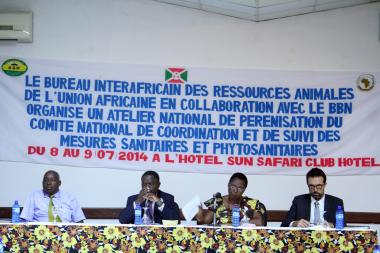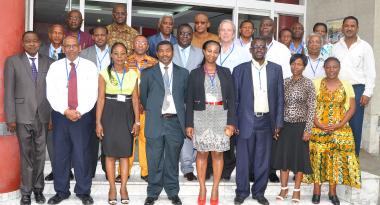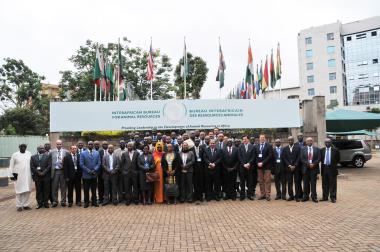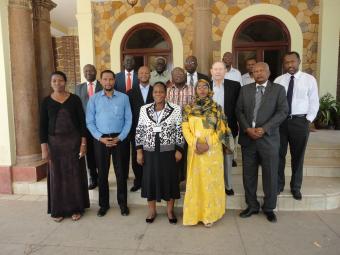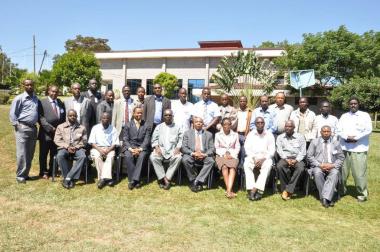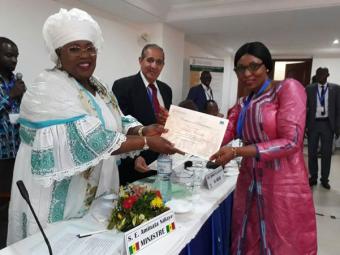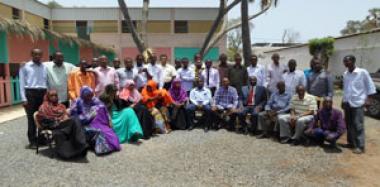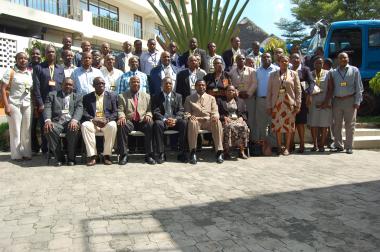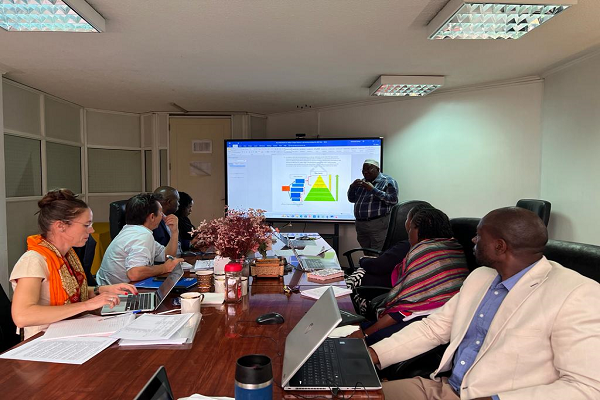
The Enhancing sustainable fisheries management and aquaculture development in Africa (FishGov 2) Project, an initiative executed by the African Union InterAfrican Bureau for Animal Resources (AU-IBAR) and funded by the European Union, stands as a pivotal endeavour aimed at bolstering governance within the fisheries and aquaculture sector across African nations. This initiative seeks to fortify policy frameworks, augment institutional capabilities, advocate for sustainable management practices, and offer support to the livelihoods of millions reliant on fisheries for their well-being.
As FishGov 2 reaches its mid-term milestone, it has become essential to scrutinize the progress achieved thus far, confront the challenges encountered, and embrace the lessons learned. To this end, a team of Evaluators contracted by the European Union, Mr. B. Caillart and Mrs. C. Brugere, are undertaking a visit to AU-IBAR offices in Nairobi, Kenya from October 16th to October 18th, 2023, to execute the mid-term evaluation.
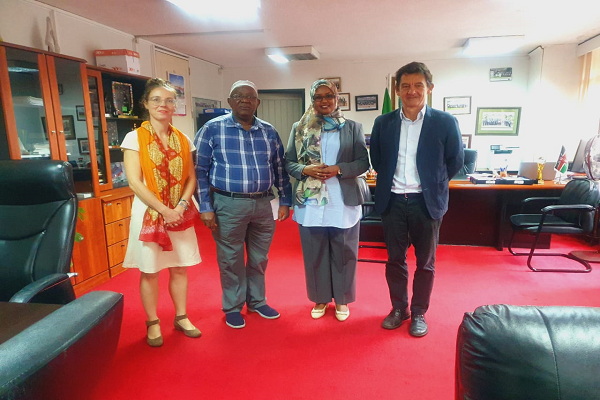
The Mid-term Progress Assessment has encompassed an in-depth examination of the FishGov 2 Project's expected performance in several key areas:
1. Strengthening Institutional Capacities: The project is expected to achieve significant milestones in enhancing the capacities of AU-IBAR and Regional Economic Communities (RECs) to support sustainable fisheries governance. Multiple training programs and workshops have been conducted, effectively enhancing the skills of stakeholders engaged in policy formulation and implementation.
2. Stakeholder Coordination: The project is expected to foster improved cooperation and coordination among a diverse array of stakeholders, ranging from governments and non-governmental organizations to Centers of Excellence in Fisheries and Aquaculture and the private sector. This collaborative approach extends its support to various continental, regional, and national platforms on fisheries and aquaculture, such as Africa Fisheries Reform Mechanism (AFRM), African Women Fish Processors and Traders Network (AWFISHNET) and The African Platform for Regional Institutions in Fisheries, Aquaculture, and Aquatic Systems (APRIFAAS). These collective efforts are expected to undeniably contribute to more effective fisheries management.
3. Promoting Evidence-based Decision Making: A hallmark of the FishGov 2 Project is its commitment to promoting evidence-based decision-making within the African fisheries and aquaculture sector. The project prioritizes data collection, scientific research, monitoring, and active stakeholder engagement. By ensuring that decision-makers have access to a comprehensive body of information and analytical insights necessary for informed and effective policymaking, FishGov 2 is expected to significantly advance the cause of sustainable fisheries resource management and the betterment of livelihoods for those reliant on the sector.
The FishGov 2 Project, established in collaboration with the European Union, builds upon the successes of its predecessor, FishGov 1, and is guided by a set of core objectives:
• Strengthen the capacity of AU-IBAR and Regional Economic Communities (RECs) to support the formulation and implementation of sustainable fisheries and aquaculture policies.
• Enhance the capacity of AU-IBAR and RECs to promote gender mainstreaming and the inclusion of small-scale fisheries in national and regional policy processes.
• Improve the effectiveness of surveillance and monitoring of fisheries resources, and enhance the capacities of AU-IBAR and RECs in these areas.
• Foster cooperation and coordination among key stakeholders, including governments, civil society organizations, and the private sector, to ensure the sustainable management of fisheries and aquaculture resources.
In conclusion, the European Union's mid-term evaluation of the FishGov 2 Project at AU-IBAR underscores both its achievements and the challenges on the horizon. With sustained commitment and support from stakeholders, including the European Union, AU-IBAR, and African governments, the project can indeed realize its objectives of advancing sustainable fisheries governance and enhancing the livelihoods of the many people dependent on fisheries for their well-being. The FishGov 2 project serves as a vital model for addressing the pressing challenges confronting the fisheries and aquaculture sector in Africa.
Second picture: From Left to Right: Mrs. C. Brugere; Dr. Mohamed Seisay; Dr. Huyam Salih, and Mr. B. Caillart

